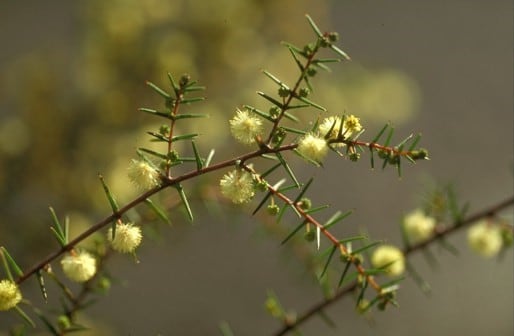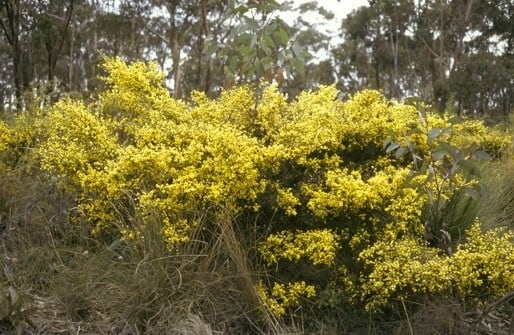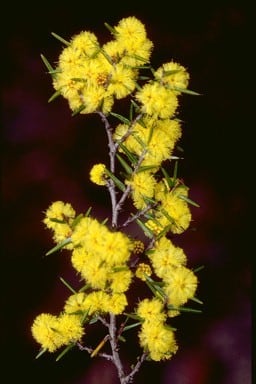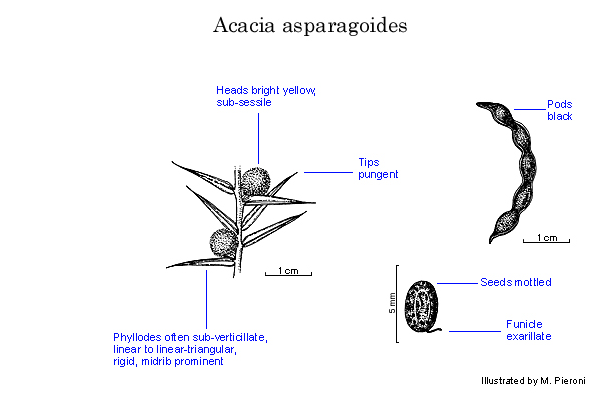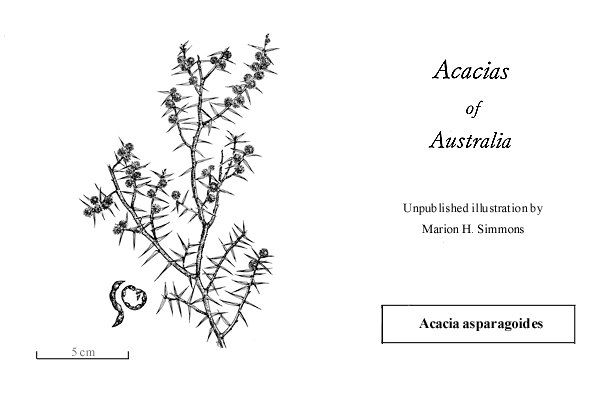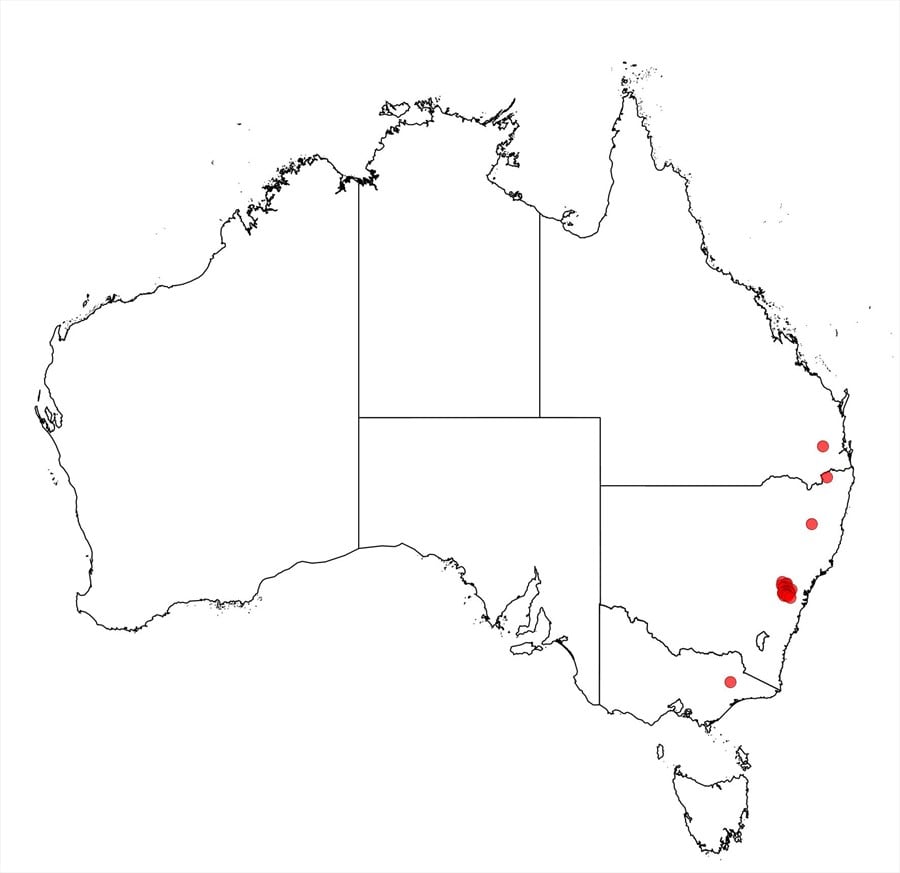Acacia asparagoides A.Cunn.
WATTLE
Acacias of Australia
Family
Fabaceae
Distribution
Occurs mainly in the Blue Mtns, N.S.W., from Newnes S to Jenolan Caves. The N.Perry specimen collected in 1977 from the Boonoo Boonoo R., near Tenterfield, is distributionally anomalous; there are no other known gatherings of the species from this area.
Description
Spreading shrub 1–2 mm high. Branchlets hirsutellous, sometimes glabrous. Stipules 1–2 mm long. Phyllodes subsessile, often subverticillate, normally patent, narrowly triangular to linear-triangular, sometimes narrowly linear, ±quadrangular to flat, 8–20 mm long, 1–2 mm wide, pungent with a 1–2 mm long cusp, rigid, green, glabrous; midrib prominent; gland normally on a slight angle 0.5–2 mm above base. Inflorescences 1-headed rudimentary racemes with axes to 0.5 mm long; peduncles 1–3 mm long, glabrous or subglabrous, recurved in fruit; basal bracts 3 and fused; heads globular, 3.5–5 mm diam. (dry), 15–30-flowered, bright yellow; bracteoles acuminate, often slightly exserted beyond flowers in buds. Flowers 5-merous; sepals free or united; petals obscurely 1-nerved. Pods narrowly oblong, shallowly to strongly curved, to 4 cm long, 2.5–4 mm wide, ±firmly chartaceous, black, glabrous. Seeds longitudinal, oblong, 3.5 mm long, mottled, exarillate; funicle filiform.
Habitat
Grows in sand on sandstone or granite, in dry sclerophyll forest or woodland or occasionally heath.
Specimens
N.S.W.: Wolgan Gap, c. 16 km NNW of Lithgow, 29 Aug. 1958, E.F.Constable s.n. (NSW); Boonoo Boonoo R., N.Perry 137 (NSW); Victoria Falls Lookout, Mt Victoria, Blue Mtns, T.Tame 1939 (PERTH).
Notes
A member of the ‘A. ulicifolia group’, closely allied to A. echinula which has larger heads on longer peduncles.
FOA Reference
Data derived from Flora of Australia Volumes 11A (2001), 11B (2001) and 12 (1998), products of ABRS, ©Commonwealth of Australia
Author
Minor edits by B.R.Maslin
B.R.Maslin
This identification key and fact sheets are available as a mobile application:
URL: https://apps.lucidcentral.org/wattle/
© Copyright 2018. All rights reserved.
